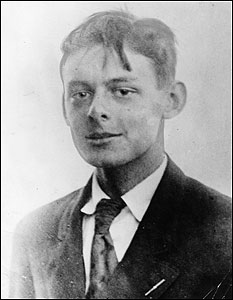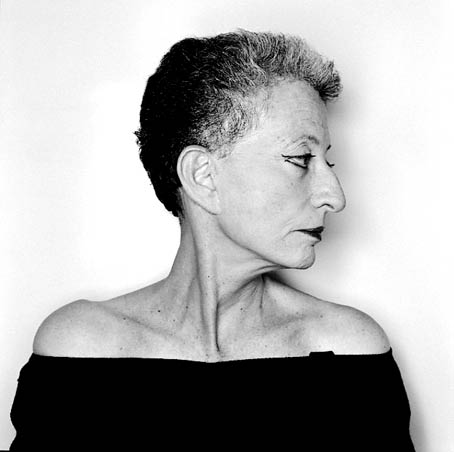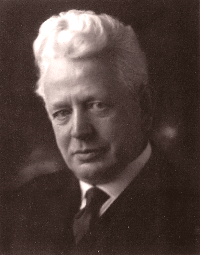
I'm pretty sure that Keats is my hero. He accomplished more in his short life that I will in my entire life and that not only impresses me, but also is unsettling. I love the Romantic era, and a large part of that is because of Keats. That most of his writing comes to us in the form of letters makes me feel as if I am connected to his personal life. Letters then, as emails now, are very personal. Not only do they express the relationship between the sender and receiver, they usually show deep emotions and ideas. I really enjoy that he gained most of his ideas for his writings from the classics. That he described things like 'almost a remembrance' and 'negative capability' so beautifully amazes me. He was only 3 years older than I am when he died. My favorite of all his odes is the Ode to Psyche:
O GODDESS! hear these tuneless numbers, wrung
By sweet enforcement and remembrance dear,
And pardon that thy secrets should be sung
Even into thine own soft-conched ear:
Surely I dreamt to-day, or did I see
The winged Psyche with awaken’d eyes?
I wander’d in a forest thoughtlessly,
And, on the sudden, fainting with surprise,
Saw two fair creatures, couched side by side
In deepest grass, beneath the whisp’ring roof
Of leaves and trembled blossoms, where there ran
A brooklet, scarce espied:
’Mid hush’d, cool-rooted flowers, fragrant-eyed,
Blue, silver-white, and budded Tyrian,
They lay calm-breathing on the bedded grass;
Their arms embraced, and their pinions too;
Their lips touch’d not, but had not bade adieu,
As if disjoined by soft-handed slumber,
And ready still past kisses to outnumber
At tender eye-dawn of aurorean love:
The winged boy I knew;
But who wast thou, O happy, happy dove?
His Psyche true!
O latest born and loveliest vision far
Of all Olympus’ faded hierarchy!
Fairer than Phoebe’s sapphire-region’d star,
Or Vesper, amorous glow-worm of the sky;
Fairer than these, though temple thou hast none,
Nor altar heap’d with flowers;
Nor virgin-choir to make delicious moan
Upon the midnight hours;
No voice, no lute, no pipe, no incense sweet
From chain-swung censer teeming;
No shrine, no grove, no oracle, no heat
Of pale-mouth’d prophet dreaming.
O brightest! though too late for antique vows,
Too, too late for the fond believing lyre,
When holy were the haunted forest boughs,
Holy the air, the water, and the fire;
Yet even in these days so far retir’d
From happy pieties, thy lucent fans,
Fluttering among the faint Olympians,
I see, and sing, by my own eyes inspired.
So let me be thy choir, and make a moan
Upon the midnight hours;
Thy voice, thy lute, thy pipe, thy incense sweet
From swinged censer teeming;
Thy shrine, thy grove, thy oracle, thy heat
Of pale-mouth’d prophet dreaming.
Yes, I will be thy priest, and build a fane
In some untrodden region of my mind,
Where branched thoughts, new grown with pleasant pain,
Instead of pines shall murmur in the wind:
Far, far around shall those dark-cluster’d trees
Fledge the wild-ridged mountains steep by steep;
And there by zephyrs, streams, and birds, and bees,
The moss-lain Dryads shall be lull’d to sleep;
And in the midst of this wide quietness
A rosy sanctuary will I dress
With the wreath’d trellis of a working brain,
With buds, and bells, and stars without a name,
With all the gardener Fancy e’er could feign,
Who breeding flowers, will never breed the same:
And there shall be for thee all soft delight
That shadowy thought can win,
A bright torch, and a casement ope at night,
To let the warm Love in!
 While I was reading DQ I was thinking about how much like 'Lars and the Real Girl' it was. Obviously Lars didn't go on quests or get beaten up, but his friends and family all pretended that his doll (that he thought was real) was actually a real person. They were kinda and attentive of her because they loved Lars so much, allowing him to be able to let her go and be happy with himself and a 'real girl.' Although the characters in DQ only pretended that he really was a knight t
While I was reading DQ I was thinking about how much like 'Lars and the Real Girl' it was. Obviously Lars didn't go on quests or get beaten up, but his friends and family all pretended that his doll (that he thought was real) was actually a real person. They were kinda and attentive of her because they loved Lars so much, allowing him to be able to let her go and be happy with himself and a 'real girl.' Although the characters in DQ only pretended that he really was a knight t o make fun of him, the same principles were there. After a while the characters really cared about his welfare and wanted to make sure he was OK. They followed him around and kept him and Sancho alive, which was really kind of them and something that they didn't need to do. Both Lars' and Don's mental problems were evident and the people in both of their lives helped keep them safe.
o make fun of him, the same principles were there. After a while the characters really cared about his welfare and wanted to make sure he was OK. They followed him around and kept him and Sancho alive, which was really kind of them and something that they didn't need to do. Both Lars' and Don's mental problems were evident and the people in both of their lives helped keep them safe.








































